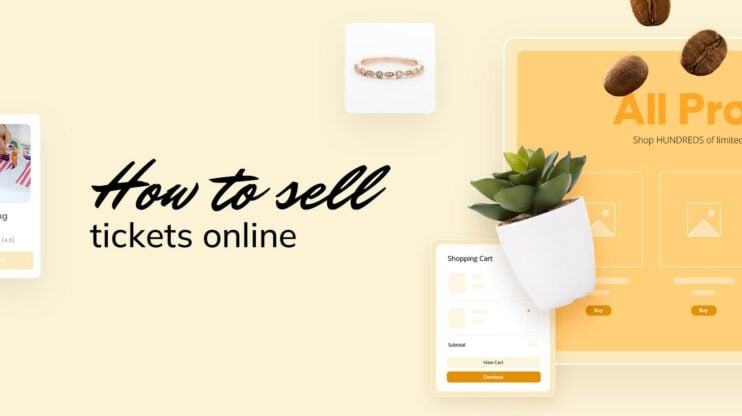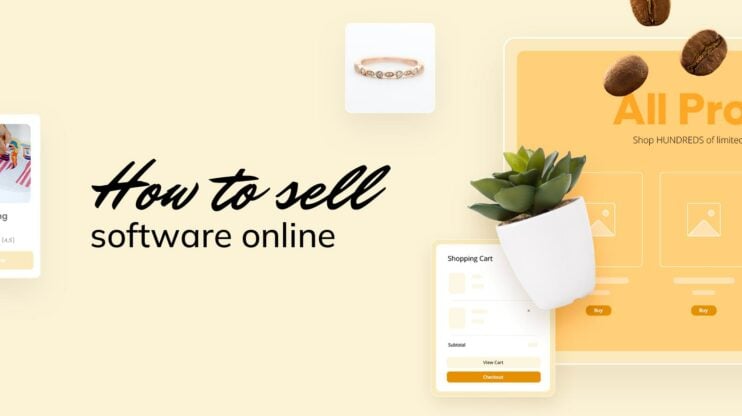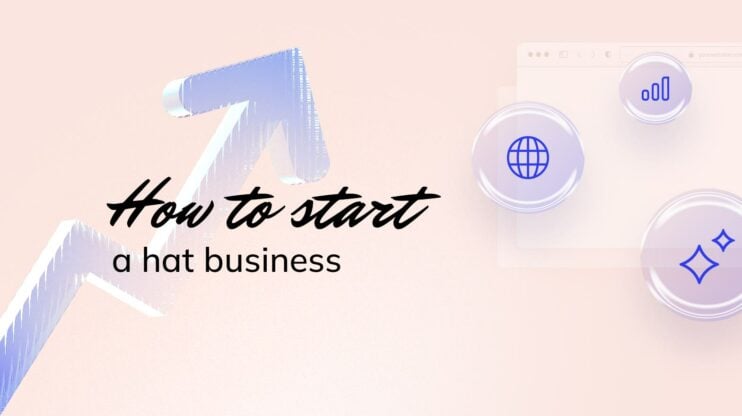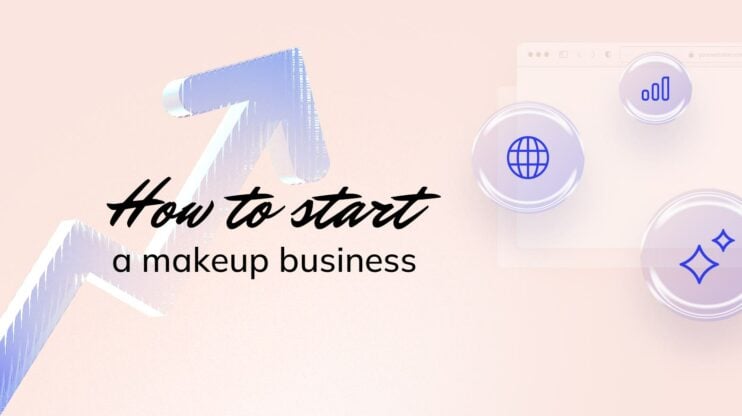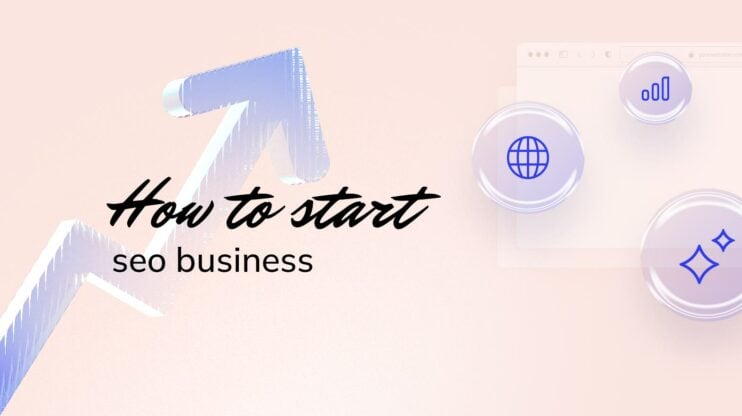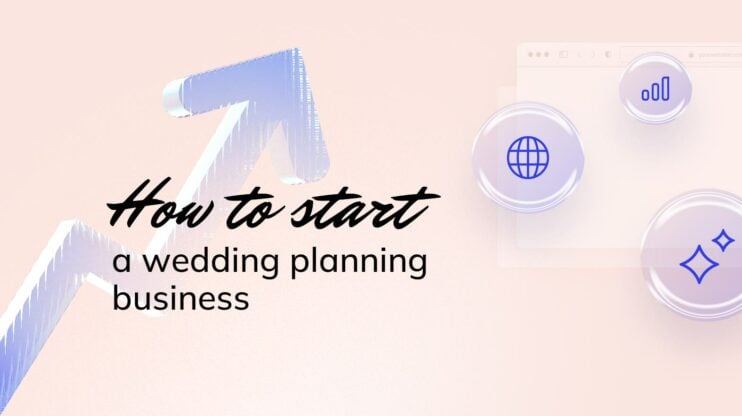Ecommerce is building a ton of momentum, accounting for nearly a fifth of worldwide retail sales in 2023 alone. Because people are spending more money online, more and more businesses are pouring resources into boosting their online presence to jump on the hype train.
Do you need an ecommerce website development agency for a ticket to ride? Don’t miss this opportunity and leave all that money on the table!
Let’s discuss what these agencies actually do. You’ll have a better idea of when an agency can help, and learn what it takes to open an online store. So, get all those good ecommerce ideas ready!

Create your online store in minutes!
Looking to sell online? Develop and launch your store with 10Web AI Ecommerce Website Builder.
Understanding ecommerce website development agencies
What is an ecommerce website development agency? Usually, it’s a collaboration between a team of web developers, marketing professionals, and various internet wizards that keep it all running.
These outfits do all the big-brain stuff, and you get to have someone hold your hand every step of the way while you talk about your wants and needs. That does sound pretty good, but keep in mind there’s a price tag for that warm, fuzzy feeling.
And your mileage may vary when it comes to actually working with an agency. Sometimes, it’s a great fit, and they have a customer for life. Sometimes, both of you can’t wait for the contract to end. They’ve got a lot to offer, though.
Custom design
Great design gives websites credibility. People will make a snap judgment of your site based on just the design. An ecommerce website development agency can help you find the right fit for your brand or business.
It’s important that the site’s aesthetics should match the purpose. Personally, I find this part challenging, as I tend to like far too many of the designs I see, making it difficult to narrow it down on the design choices. Having someone with experience to guide you when pinpointing the one that’s right for this job can be nice.
Custom design doesn’t necessarily mean complex. Simplicity is key for ease of use and a user-friendly experience. A seasoned designer can help you find the sweet spot for your audience.
Backend development
An agency can provide an irreplaceable service if you need complex backend development.
An ecommerce website development agency can build massive product catalogs, custom integrations for essentials like shipping and payment gateways, or other advanced solutions. Talented engineers have the experience to help businesses offer a unique user experience or develop an innovative way to meet your customer needs.
Optimizing for search engines
Not everyone spends all day questioning why Google includes some sites and not others in search results. Even if you don’t study Google’s behavior excessively, it’s easy to see why optimizing an ecommerce site for search engine visibility is essential.
SEO-savvy ecommerce website development agencies can help you draw in more organic search traffic to your site and product pages.
Ongoing maintenance and needs
When software gets abandoned, updates slow to a halt, things start breaking, and it tends to degrade until it’s no longer usable.
Websites have a similar insatiable hunger for attention. Even if you opt for ongoing agency support, there may come a day when your agency hands over the shop keys.
In addition to keeping the site running smoothly and securely, there’s always content to create, improvements to make, and so on.
Possibly, you might want training and support to manage things yourself. What if you want to change the entire website? I’m sure that’s something an agency would love to hear from you.
Make it or break it: key factors for success in ecommerce
Ecommerce websites rely on a combination of usability, performance optimization, and charisma. A polished, likable website will go a long way toward success for ecommerce stores.
Credibility and trust
The value of a professional website with a user-friendly experience cannot be overstated.
You and I know that we’re not supposed to judge a book by its cover, but in reality, that’s literally what happens when visitors land on your site.
The vast majority of people who visit a website immediately judge the site’s credibility based on its design. Online shoppers, including the sought-after customers in the younger crowd of Millennials and Gen Z, say they check a business website to confirm it’s legitimate before they part with any cash.
User experience
To make matters worse, it’s even more concerning when experts like Justin Mifsud say most visitors won’t even come back if they have a negative experience. No pressure, though!
88% of online consumers are less likely to return to a site after a bad experience.
Generally, prioritizing responsive design and fast loading speed can soothe impatient visitors and provide a better overall experience.
A ton of thought goes into making converting visitors to paying customers as easy as possible. Designing for users is an art and a science.
Conversion optimization
Continuously tweaking pages to improve conversion rates is a time-honored practice for any type of website. In particular, ecommerce sites have a vested interest in improving user experience and encouraging visitors to take key actions.
Layouts, calls-to-action, and personalized dynamic content all play an important role in enticing visitors to discover products, click that add-to-cart button, and ultimately make the final purchase.
Do you need an ecommerce website development agency
With the key factors of success in mind, you might ask yourself if you really need an ecommerce website development agency. To best answer that question, it’s helpful to define your needs.
Identifying your needs
As always, the best place to start is from your ideal user’s perspective. What do your perfect customers want or need?
Keeping your eyes on the prize means knowing your audience. Many ecommerce stores have similar basic needs:
- A solid ecommerce platform to manage products, customers, and orders
- A way to manage day-to-day updates on the site and product pages
- Secure, trusted payment options that fit the store’s customer needs
- Integrations for shipping, sales taxes, inventory, customer management, etc.
- The ability to scale, grow, and add new features or functionality
When it’s time to call the pros
Maybe you need custom solutions, or you have a shockingly huge product catalog. Maybe you’ve got cash to burn and not much time to spare.
If this sounds like you, definitely get in touch with some agencies and see what they have to say.
Some of these pros can deliver when it comes to advanced, complex, or heavily-customized ecommerce sites. In fact, if you find yourself facing these types of requirements, having experts on hand who can develop your ecommerce site from the ground up may be the only way to achieve exactly what you have in mind.
Costs
Once you have an idea of your needs, estimating a price becomes doable. With the average costs to build a sizable ecommerce site starting at around $10,000 (and we’re not talking about anything remotely resembling Amazon, eBay, or anything like that), budget limitations are often the deciding factor when considering working with a developer or agency.
Not to mention, ongoing needs for maintenance, updates, new software, site redesigns, marketing, and optimizations can quickly add up. Most ecommerce sites can expect to be nickeled and dimed to the tune of a few hundred dollars a year to tens of thousands and up.
The higher-cost maintenance requirements are associated with:
- Enterprise-level hosting plans or other specific hosting needs
- Major website overhauls or redesigns (We have to keep up with the other guys, right?)
- Software or additional extensions for added functionality or features
It takes money to make money. At a minimum, it will cost a simple small business site around $120 a year to keep things up and running.
At this price point, you’ll probably need to handle some tasks yourself, but this estimate covers basic costs like:
- Hosting
- Domain renewal
- SSL certificate
In addition to keeping the lights on, you’ll probably want to consider how you’ll market and promote your site.
That might include consulting with an ecommerce agency or professionals to identify content opportunities, optimize the site for search engine visibility, and publish written and digital content to tantalize your audience.

Create your online store in minutes!
Looking to sell online? Develop and launch your store with 10Web AI Ecommerce Website Builder.
Building your website with AI
Every day, the internet gets over 250,000 brand-new websites. Artificial Intelligence (AI) can help you join the club. Whether you hire an agency to build an ecommerce site or go the DIY route, there’s a good chance you’ll run across some AI lending a helping virtual hand.
With a market size of over $196 billion and an exciting projected growth rate of 36% over the next few years, AI looks to be part of the future of advanced technologies in fields like automotive, healthcare, manufacturing, retail, and (you guessed it!) website building.
Innovations in AI
Long gone are the days of website builders with ho-hum templates that produce the internet equivalent of neighborhoods filled with cookie-cutter homes that all look the same. Modern AI website builders do their jobs based on the description of the website you want.
You’ll also find AI tools that help create page content like text and images. AI-enhanced tools do a good job of catching errors and typos and improving the quality of any written content.
Modern hosting platforms incorporate AI into nearly every aspect of building and managing websites. These technologies make optimizing your site for speed and performance easy and save loads of time managing your site. In particular, ecommerce site can choose from a range of tools and services to increase productivity and boost time efficiency.
Approachable and doable
The ease of working with AI to build a website puts the ability to create an online shop into anyone’s hands. Using an AI website builder, you don’t need to be a hacker-typer coding guru or even technically inclined to build a website.
Generative AI can help with content, too. However, I’m going to be considerate towards all the educators out there: I can’t, in good conscience, encourage you to let ChatGPT write everything for you.
What will the large language models (LLMs) have to read if you don’t come up with something original?
With that disclaimer, I would encourage you to try out some of AI’s amazing tools and innovations. You can find help working out a business plan, finding the perfect logo, creating a marketing strategy, or building ecommerce websites.
There’s no denying it’s quick
If you’re frequently struck by a great idea for a business, there’s very little to lose by generating a quick website to gauge interest or help validate your business ideas.
For ecommerce hopefuls, spinning up an online store takes just a few minutes and could be a profitable learning experience.
Affordable, professional results
Among the many reasons people dabble in the DIY approaches to website building, saving money is often the motivating factor.
Sometimes, things work out, and it’s great. People will find your website, and maybe they will even give you some positive feedback. Other times, it’s an uphill battle, and the whole project eats up too much time.
Unfortunately, like money, time is also a finite, valuable resource. Fortunately, because AI can help with so many aspects of what goes into building a website, its value as a time-saver means all the difference.
Instead of:
- Wrangling code
- Beating a theme into shape (seriously, they never just automatically look like the demo site)
- Fiddling with a generic, pre-built template
- Or having a bit of a cry
Now, we can tell a tool like the AI Ecommerce Website Builder what we want and start working on an attractive, functional website right away. You can get professional results with very little time and effort.
Ownership of your content and online community
While platforms like Facebook, TikTok, or other social media are a perfect way to expand your audience, at the end of the day, these audiences don’t belong to your site. The content you spend resources creating and posting on these platforms doesn’t exactly belong to you once it’s published.
Algorithm changes can affect your content’s visibility overnight, limiting who sees it. Relying on social media alone also limits your reach in general. You may have to rely on the platform’s advertising or sponsored posts to reach your audience.
That’s not to say that creating content to woo audiences on social media is a waste of time. Far from it. Maintaining a presence on social platforms is a must for brands and ecommerce sites. Building a community can elevate your brand visibility and bring exposure to a highly-targeted audience.
GoDaddy CEO Aman Bhutani argues that efforts on these types of platforms should complement and augment a space where you can authentically represent your brand or business.
That means building out a website in addition to cultivating an online presence.
Ecommerce website development with the AI Ecommerce Website Builder
Building an ecommerce website with 10Web takes just minutes. This quick process begins by describing your desired site. Then, the AI generates an editable framework for your store’s pages and a few products to get started.
Once you nail down what pages and sections you want, the AI Ecommerce Website Builder creates unique templates for different pages. These templates are reusable and editable, providing a flexible way to create and update page content.
10Web’s AI Ecommerce Website Builder gives you total control over every aspect of your ecommerce store. Since it has AI-enhanced tools for managing your store, the platform makes performing website changes or updates quick and easy.
Editor
The ability to drag and drop content and functionality is the key to building websites without much coding knowledge.
The 10Web Builder lets you edit any aspect of each page. The editor’s layout and function widgets allow you to change and update your website however you like. Premium ecommerce widgets let you drop in essential ecommerce functionality to create eye-catching product pages and displays.
Easy store management
The dashboard presents your store’s products, customers, and orders in an easy-to-understand format. The dashboard is also where you can set up and manage your store’s payment options.
Set and forget hosting for fast website speed
Page loading speed is a significant factor in user experience and building trust. You need fast hosting, but an optimized site is a must, too.
No need to know a good server admin, just flip a switch and watch while 10Web automatically optimizes your website for speed and performance. This is an indispensable feature for any website since it removes the technical barriers to fine-tuning your site performance.
You’re the boss
The AI Ecommerce Website Builder gives you total control over every aspect of your ecommerce store. And with the AI-enhanced tools for managing your store, making website changes, improvements, or updates is straightforward.
So, what do you think? Do you need an ecommerce website development agency to make it happen?
Before you decide, see for yourself what AI can do for you. Take a few minutes, and come find out what your store could look like!

Create your online store in minutes!
Looking to sell online? Develop and launch your store with 10Web AI Ecommerce Website Builder.
FAQs
What is an ecommerce agency?
An ecommerce agency is a specialized team that helps online businesses:
Design and build ecommerce sites
Manage, promote, and optimize sales channels
Improve the store’s user experience and conversion rates
Keep ecommerce sites updated, secure, and optimized for performance
How much does it cost for someone to build an ecommerce website?
It can cost upwards of $10,000 to develop a complex ecommerce website. Alternatively, if your budget is more modest (like zero dollars), Ecwid offers a small shop option. A platform like Shopify or Wix is another option for building an ecommerce site. These platforms charge monthly or yearly for an online store without the hefty upfront price tag. WooCommerce is a popular self-hosted option for creating an ecommerce website.
What is the best website builder for ecommerce?
If you want to build an ecommerce site yourself, you’re in luck! There are plenty of options, including Shopify, Wix, and WooCommerce. While these ecommerce platforms are far more than just website builders, you can use them to drag and drop your way to online store ownership. However, 10Web’s AI Ecommerce Website Builder might be the easiest way to create an ecommerce site. Answer a few questions, and watch as the AI walks you through the generation process, resulting in a fine-tuned, professional ecommerce experience.
If I have an AI-generated website, will I be able to support more visitors and traffic as the store grows?
A lot of this depends on your ecommerce platform. Most allow for expansion and growth, but it often comes at a cost. Consider whether you’re locked into a specific platform or hosting service. The ad hoc nature of some ecommerce platforms means you may need to invest to add more features or costly hosting services.
WooCommerce is a popular ecommerce platform that can be hosted just about anywhere. A big development community is behind this open-source platform, offering many extensions for adding ecommerce functionality.









